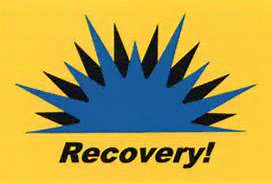VISN 5 MIRECC - Mental Health Recovery

What is Mental Health Recovery? | What Do Recovery-Oriented Mental Health Services Look Like? | Why is a Recovery Model Important? | What Local Resources Can Help Me Develop Ideas and Respond to these Changes? | Who is the Point of Contact for Recovery Assistance? | Small Grants Program for Recovery | Mental Health Recovery Resources
Nationally and in VISN 5, VA mental health services are working to embody a Recovery Model of serving Veterans with mental illnesses - through changes in clinical services, education, and research, and by involving Veterans with mental illnesses, their family members and friends, and mental health staff in these new efforts.
These changes were prompted by the President's New Freedom Commission on Mental Health (2003) and the VA Action Agenda ("Achieving the Promise: Transforming Mental Health Care in the VA") that resulted from it.
As you continue to work on and hear about initiatives regarding mental health recovery, the VISN 5 MIRECC is available as a resource - please feel free to call on us!
In many ways, VA mental health services already are "recovery oriented" - but we can do so much more to help Veterans reach their goals and optimal health. Specific local initiatives will vary according to what VISN 5 mental health administration, staff, Veterans, and their families decide to prioritize -- as well as central mandates.
What is Mental Health Recovery?
A deeply personal, unique process of changing one's attitudes, values, feelings, goals, skills, and/or roles. It is a way of living a satisfying, hopeful, and contributing life even with limitations caused by the illness. Recovery involves the development of new meaning and in one's life as one grows beyond the catastrophic effects of mental illness.
- W. Anthony, 1993
Mental health recovery is a journey of healing and transformation for a person with a mental health disability to be able to live a meaningful life in communities of his or her choice while striving to achieve full human potential or "personhood."
- Substance Abuse and Mental Health Services Administration (SAMHSA), 2005
Recovery is variously called a process, an outlook, a vision, a guiding principle… the overarching message is that hope and restoration of a meaningful life are possible, despite serious mental illness… Instead of focusing primarily on symptom relief, as the medical model dictates, recovery casts a much wider spotlight on restoration of self-esteem and identity and on attaining meaningful roles in society.
- Mental Health: A Report of the Surgeon General, Chapter 2, 1999
What Do Recovery-Oriented Mental Health Services Look Like?
According to SAMHSA (2005) and others, recovery-oriented mental health services hold as a core value that people with mental illnesses are not defined by their illness and can live rich satisfying lives. Such programs and services…
- View the Veteran as the center of the process, and foster empowerment
- Respect and include the Veteran and involved family members as partners in treatment/services
- Recognize that recovery is a dynamic process that the Veteran pursues over time
- Seek to restore hope and return of functioning
- Value self-help and peer support
- Work to maximize quality of life
- Help the Veteran move forward toward his/her goals, not focusing only on symptom stabilization
- Employ staff who treat the Veteran with respect, believe in the Veteran as a person with potential, and express hope and optimism for the recovery process.
Why is a Recovery Model Important?
- Traditional models of care have often been paternalistic and have not respected Veterans' strengths, preferences, and goals.
- Traditional models of care have often failed to consider the potential of each person to grow, to reach goals, to live a meaningful life.
- Recovery-oriented care may be more effective, show better outcomes.
- Veterans and their family members are calling for a true working partnership with providers.
What Local Resources Can Help Me Develop Ideas and Respond to these Changes?
The VISN 5 MIRECC offers several kinds of assistance:
- Consultation: recovery models, peer programs, consumer involvement in care, etc.
- Education: workshops for your staff or Veterans on various recovery topics.
- Information: resources and people within VISN 5 and nationally, curricula for various topics and programs, bibliographies of related research, etc.
- Cross-Pollination: connecting staff/Veterans interested in a given idea with others in VISN 5 or more broadly who are already doing something similar, for help, idea exchange, and support.
- Seed Money: we have a Small Grants Program for Recovery (4x year, up to $5000) to help you start clinical innovation and education projects that are recovery-related.
Who is the Point of Contact for Recovery Assistance?
Alicia Lucksted, PhD
VISN 5 MIRECC Recovery Coordinator
Attn: Annex Building, Seventh Floor, MIRECC
10 North Greene Street, Baltimore, Maryland 21201
Telephone: (410) 706-2490
E-mail: a.luckste@psych.umaryland.edu
Small Grants Program for Recovery:
- VISN 5 MIRECC Small Grants Program for Recovery
$50 - $5,000 to support recovery-oriented educational or clinical programs
To read PDF documents, you need a PDF viewer. The link to the free viewer software for Adobe Reader is available here.
Disclaimer of external hyperlinks: This webpage contains links to webpages outside of the Department of Veterans Affairs website. The VA neither endorses nor has responsibility for the content of these external webpages.



















